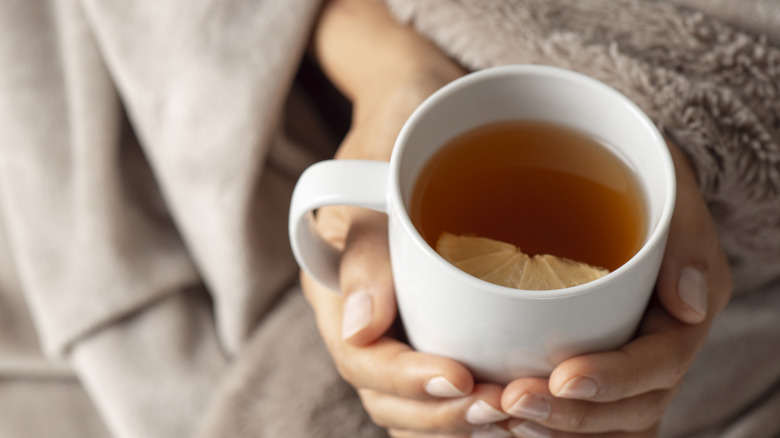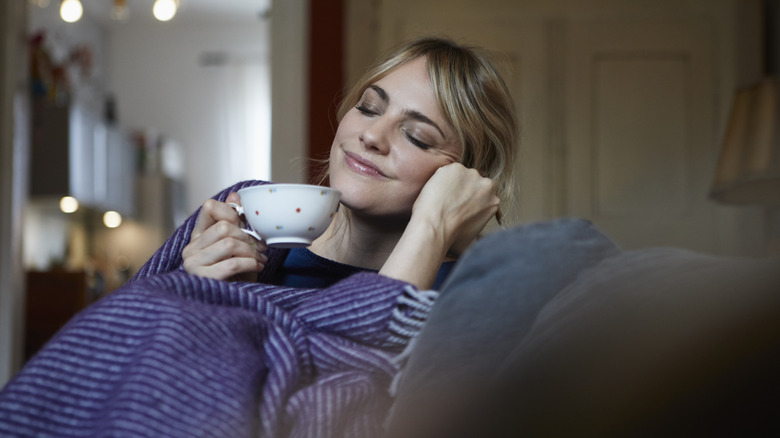Does Sleepytime Tea Actually Work (Or Is It All Just A Placebo)?
On average, around 5 billion cups of tea are drunk every day worldwide. Tea is also the most popular drink after water, so it makes sense that there are various types of tea to enjoy whatever mood you're in. Need a jolt of caffeine? Drink some black tea. Need a little caffeine, but don't want the jitters? Drink some white tea. Feeling wide awake, but it's midnight? Drink some sleepytime tea. While caffeinated drinks are the real deal and will give you a scientifically verified energy boost, the idea that non-caffeinated teas help with insomnia or anxiety might seem too good to be true.
Not everyone wants to dabble in melatonin supplements, as some users experience side effects like strange dreams (if you know, you know), dizziness, and even brain fog the next day. Sleepytime teas are a good alternative for those who want to relax and may help with sleep. While there are many different sleepy tea blends, chamomile is usually a key ingredient. Some studies show that chamomile promotes relaxation and has a positive effect on sleep quality. While it may not cure your insomnia or get rid of your worries, chamomile sleepytime tea is a soothing way to end your day and could help you enjoy a better night's rest.
Does sleepytime tea have any side effects?
While there's some proof that sleepytime tea helps with sleep, the effects could also be the result of a placebo. This means that people may sleep better after drinking sleepytime tea because they believe they are going to sleep better and, therefore, mentally prime themselves for a peaceful night. Drinking sleepytime tea can also be part of relaxing wind-down routines. Whether it works or not, there are few downsides to enjoying a hydrating cup of tea, although some common ingredients may cause mild side effects like headaches, stomach aches, and dizzy spells in certain individuals. These side effects have mainly been noticed in brands of tea that contain high quantities of valerian, a root commonly associated with sleep promotion.
Some herbal teas should not be consumed in large amounts during pregnancy, especially green teas. However, this is due to the naturally occurring caffeine, meaning it is unlikely you'll find many brands of sleepytime tea made specifically with green tea leaves. Although simple herbal teas won't drastically alter your sleep schedule, they can certainly be a safe and relaxing drink to enjoy before bed.

